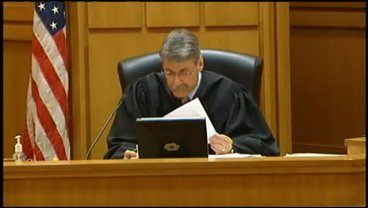Wisconsin Judge Upholds State Ban on Poker
Posted on: August 13, 2015, 01:48h.
Last updated on: August 13, 2015, 01:48h.

Poker players were hoping that arguments pointing out the role of skill in poker could win over a Wisconsin judge, perhaps leading to the legalization of the game throughout the state.
Instead, they learned that decades of precedent outweighed the mechanics of poker.
The case in question had poker pro Mark Kroon and Steve Verrett, the state director of the Poker Players Alliance, asking a state court to make a declaratory judgment about the legality of poker in the case.
In particular, they wanted a ruling on whether the game was one of skill or luck, something they hoped would help define the game as legal if a judge came down on the side of skill.
At the moment, poker is illegal under Wisconsin law, at least outside of tribal casinos.
While the law isn’t regularly enforced against home games, it does prevent larger poker gatherings, such as those that Kroon tried to organize at the Players Sports Bar in Madison, which he owns.
Judge Speaks Highly of Poker, But Says Law is Binding
Wednesday saw a judge make the ruling that poker players had been waiting for.
But with about 20 local poker players in attendance, a Dane County judge said that despite his interest in the game, the law was the law.
“I’ve got to say that poker is such a rich topic on so many levels,” said Circuit Court Judge Richard Niess. “It’s as much a part of the American fabric, I think, as baseball and apple pie. But having said that, I can’t ignore the law here, and the law unfortunately, to use a poker analogy, is a stacked deck against the plaintiffs here.”
Judge Niess had no complaints about the arguments made by the plaintiffs, saying that they (and many others) had likely shown beyond any doubt that poker was a game of skill in the long run.
“I have no doubt poker involves, in the long run more skill than chance,” Niess said.
Ruling Hinged on 1964 Case
But Judge Niess ultimately relied on the 1964 case of State v. Morrissy, in which a criminal conviction was upheld by the state Supreme Court due to poker tournaments that were taking place in a tavern. In that case, Niess said, poker is specifically considered gambling.
“That’s binding in this court whether they’ve considered your arguments [about the skill factor in poker]…or not,” Niess told the plaintiffs. “If doesn’t appear they did, but the case is still nonetheless binding on me.”
Niess suggested that in order to get relief, the plaintiffs would likely need to take their arguments all the way to the state’s Supreme Court (which he compared to drawing to an inside straight), or make an appeal to the state legislature to change Wisconsin law.
Stan Davis, the attorney representing the plaintiffs, disagreed with the judge’s decision, saying that state gaming laws had changed significantly since 1964, which Judge Niess had failed to consider.
He pointed to a 2014 ruling by the US Court of Appeals for the 7th Circuit, which found that poker was not criminalized in the state.
But having failed to sway the judge in this case, poker games will remain illegal in the state, even as countless players continue to participate in small home games on a daily basis.
“The sad part is that someone could get arrested over this because of a 50-year-old case,” Verrett said.
Related News Articles
Pair Found Guilty in New Zealand Roulette Scam
Las Vegas Street Performer Challenges for Right to Entertain
Most Popular
Tropicana Las Vegas to be Imploded, Tentative Date Set
VEGAS MYTHS BUSTED: Golden Gate is the Oldest Casino in Vegas
Most Commented
-
End of the Line for Las Vegas Monorail
— April 5, 2024 — 90 Comments -
Mega Millions Reportedly Mulling Substantial Ticket Price Increase
— April 16, 2024 — 6 Comments
















No comments yet